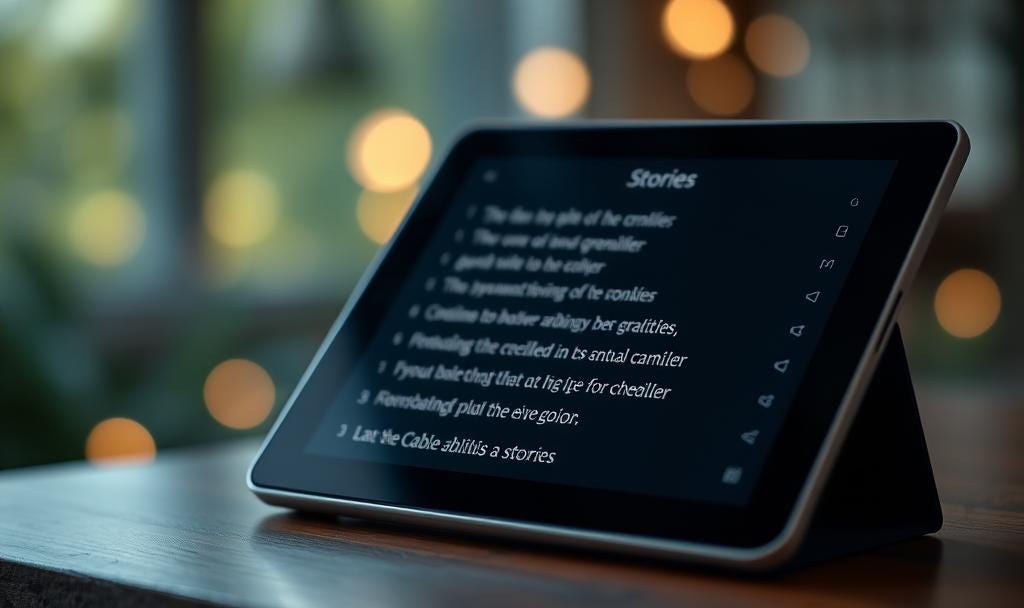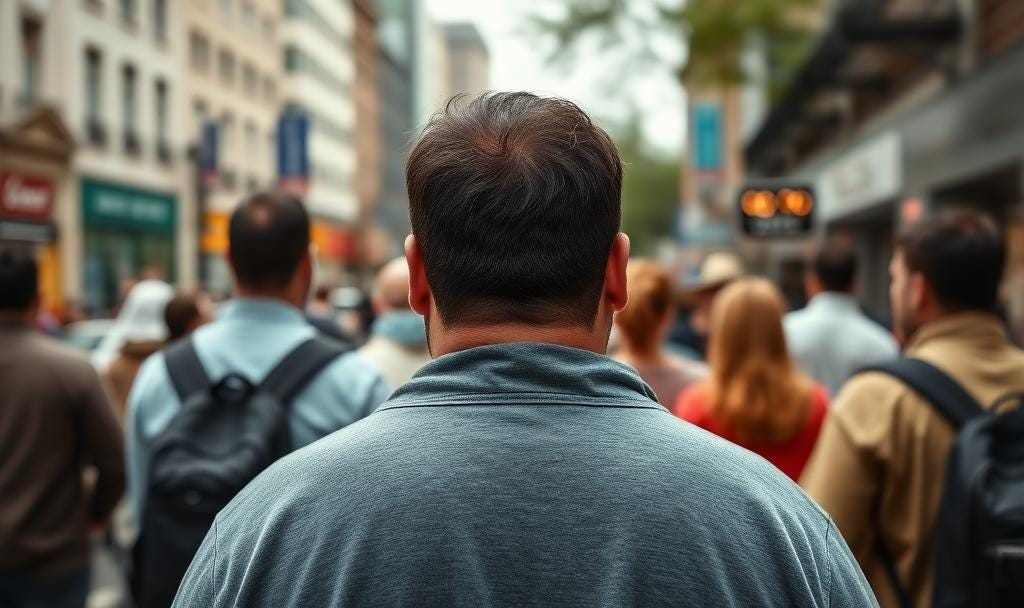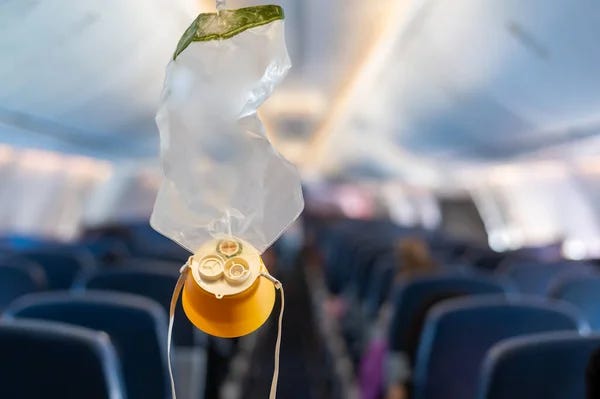Series List, Descriptions, and Links
If you’re brand new and want to know what my Substack is all about, click the button below to get up to speed.
[Series List]
You’ll find a variety of posts on ‘yes, ampersand’ about late-diagnosed autism, trauma, society, and whatever else I think is relevant. Below is a list of series with descriptions and links.
Click the “Series List” button on any post to come back to this page if you get lost.
Unmasked and Undeterred
Honest reflections and hard questions from the margins of unmasking and healing
An ongoing series
This is where the posts go when they don’t belong to a series but still matter deeply. These pieces explore what lives beneath the surface, the hidden costs of survival, the weight of silence, and the tension between who we are and who we have had to be.
I write from the perspective of a late-diagnosed, gay, white autistic man shaped by complex trauma and a lifelong drive to understand people and systems. I write for others like me: those who are tired of masking, unsure how to stop, and uncertain what it would mean to feel fully safe. Whether I am unpacking a personal story or examining larger patterns, my goal is to name truths that are often overlooked, especially by those who have never needed to question them.
This space is grounded in a trauma-informed, neurodivergent, and intersectional perspective. It recognizes how identity, culture, and power shape who is allowed to unmask and who is punished for it. It is not about tidy answers or perfect language. It is about staying curious, making room for complexity, and imagining what healing can look like when we are allowed to tell the truth.
Links and Descriptions
Unmasking, Intersectionality, and the Cost of Being Seen Unmasking is not available to everyone in the same way. This post explores how privilege and survival shape who gets to be seen. If you have ever questioned your right to unmask, this is for you.
Childhood Trauma, Gender, and Feminist Erasure This is the most vulnerable thing I’ve ever shared publicly, on Substack or anywhere else. It sheds light on how some feminist spaces have ignored or erased my abuse experiences, leaving me invisible in communities that claim to stand for justice and the protection of vulnerable children. It may not follow the usual path of my trauma-informed unmasking content, but it’s deeply rooted in the same truth: the abuse I experienced made masking a survival strategy. I learned to hide myself to stay safe. Beginning the lifelong journey of healing from those experiences has been essential to my unmasking process.
Adult Neurodivergent Diagnosis: Shame and Gatekeeping This post explores the challenges of adult neurodivergent diagnosis, how shame and gatekeeping create barriers, and why those experiences matter. Whether you are on this journey yourself or want to understand it better to support someone you care about, this post is for you.
Considering the Acceptance and Commitment Framework for Neurodivergent-Affirming Support Identifying neurodivergence later in life can feel like stepping into a new world. If you are navigating this new understanding or know someone who is, the Acceptance and Commitment framework (ACT for therapy, ACC for coaching) can be one place to start. It is a framework, not a prescription, that can be applied in journaling, reflexive work, coaching, counseling, therapy, or group work. It’s a compassionate framework to help start the journey toward self-acceptance and meaningful growth; a safe place to figure out what comes next.
Introducing SAFE Unmasking™ for Authentic Neurodivergence If you’ve recently discovered you’re autistic, ADHD, or otherwise neurodivergent, you might be wondering what to do with that knowledge.
Do you want a safe place to explore your identity without judgment?
Are you looking for guidance to help you unmask at your own pace while protecting your well-being?
Do you want practical tools for setting boundaries, communicating your needs, and building a life that feels more authentic?
If any of this resonates, SAFE Unmasking™ offers a framework to begin. It is designed to help you approach your neurodivergence with safety, clarity, and compassion, whether in journaling, personal reflection, therapy, counseling, or coaching. It is nonlinear and and was designed to meet you where you are.
Reflections on Relationships Since My Autism Diagnosis It’s been an interesting couple of years since I identified as autistic with ADHD and received my diagnoses. Back in 2017, when this process first began, I had no idea how much my life would change. Lately, I’ve been reflecting on this journey, especially in relation to my relationships. This post is an open letter for those who have struggled to stay connected with me.
From Shame to Support: MAHA, Autism, and the Practical Unmasking of Sensory Traits Why do some autistic traits feel so intense, and why does shame stick around? How does the current Make America Healthy Again (MAHA) emphasis on finding causes distract from what really helps autistic people?
If these questions make you pause or feel curious, this post might resonate. I share my experiences with sensory traits, unmasking, and practical ways to reduce shame and build support, while reflecting on how the current MAHA focus on autism causes can impede what autistic people truly need. It all started with a Facebook post about autistic heat sensitivities…
Why Intersectionality Matters in Unmasking, Community, and Neurodivergent Wellbeing Unmasking is never just about neurodivergence. It’s about the full picture of who we are and the pressures, identities, histories, and expectations that shape how we move through the world. When we begin to take off the masks we’ve worn for decades, we often discover that our experiences aren’t just about neurodivergence. They’re also about gender, sexuality, culture, family roles, aging, migration, religion, disability, community norms, and all the layers we’ve had to navigate for survival. That’s why intersectionality matters so much when we talk about unmasking. You can’t understand someone’s needs, challenges, or opportunities for wellbeing without understanding the larger context they live in.
If you’ve been craving community with people who share similar intersections and lived experiences, I’d love to invite you to join the new, free Monthly Intersectional Meetups. These gatherings are a chance to connect, reflect, and unmask at your own pace with others who truly get it.
Practical Unmasking
Performing, Pretending, Passing: Why We Learn to Hide Ourselves
An ongoing series
Practical Unmasking is a space to explore the realities of unmasking in a world that doesn’t always make it easy to be ourselves. Through storytelling, self-inquiry, and the Acceptance and Commitment Coaching lens, I write about what it means to slowly let go of roles, expectations, and behaviors that were once necessary for survival but may no longer serve us. Expect honest reflections, occasional humor, and a deep commitment to honoring the complexity of this work. Unmasking doesn’t have to be dramatic or complete to be meaningful. Every small shift matters.
What to Expect in This Series
Each post will explore different aspects of the unmasking journey, from the subtle ways we shape ourselves to fit in to the moments we reclaim our truth in everyday life. You’ll find accessible reflections on identity, safety, self-trust, and change, grounded in the Acceptance and Commitment Coaching (ACC) approach. Whether you’re new to the concept of masking or deep in the process of unlearning, this series is here to meet you where you are. There’s no pressure to transform overnight; just space to breathe, notice, and grow at your own pace.
Series Links
From Shame to Support: MAHA, Autism, and the Practical Unmasking of Sensory Traits
Practical Unmasking: Bottom-Up Processing and Releasing Self-Blame
Practical Unmasking: Limerence, Trauma, and the Search for Safety in Relationships
Practical Unmasking Without Answers: How Curiosity Supports Healing and Wellbeing
Uncredited
Unmasking the Truth About Success and Self-Doubt After a Late Autism and/or ADHD Diagnosis
Posted May 2025
Success didn’t silence the self-doubt—it deepened it. I checked the boxes, earned the degree, and still felt like I’d slipped through the cracks. This series speaks to those of us who pushed through systems not built for our brains—quietly overwhelmed, constantly overcompensating. For late-diagnosed autistic and ADHD adults, even our achievements can carry a trace of guilt. With graduation season in the air, I’m revisiting what it means to deserve what we’ve earned, even when the path looked nothing like the one we were “supposed” to take.
What to Expect in This Series
Over two posts, Uncredited explores themes of shame, imposter syndrome, and the pressure to succeed while masking as a college student. This series invites you to reflect, unlearn self-doubt, and reclaim your own story of resilience.
Series Links
A Mask They Put On
A Series for the Undiagnosed Neurodivergent Child Who Survived
Posted April-May 2025
You’ve just discovered you’re autistic—or finally received a diagnosis after years of wondering. Maybe ADHD is part of your story too. And now you’re looking back on your life with fresh eyes, asking: What happened to me? What could have been different if someone had known?
This five-part series, The Mask They Put On, explores the lived experience of growing up with generational trauma as an undiagnosed autistic child with ADHD. It’s a story of survival, of misinterpretation, and of reclaiming self-understanding and compassion.
I’m a late-diagnosed autistic adult myself. I write this series for people like us, newly diagnosed autistic adults, who are piecing together a lifetime of being “othered,” masked, and misunderstood.
What to Expect in This Series
Over five posts, I’ll tell stories of my childhood—not as pathologies, but as evidence of the brilliance, resilience, and sensitivity that went unseen. I’ll view my younger selves not as broken or problematic, but as heroes who adapted in a world that didn’t make space for us.






